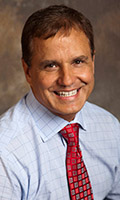It’s been many months since our Executive Director Todd Sherer completed his term as president, of the Association of University Technology Managers (AUTM), the professional association for those involved with academic technology transfer. Our industry continues to evolve rapidly, so we thought it a good time to check in, speak with him about his experience, and see if his perspective has changed with the passage of time. We interviewed Todd about his term as president and got a glimpse into what it’s like to be AUTM president. We also discussed how this experience will influence him going forward.
Here’s part one of that interview.

What attracted you to the opportunity to be AUTM president?
I have wanted to be AUTM president since I first served on the board more than a decade ago; it has been on my radar screen for a long time. Everybody in the academic community knows that AUTM is the premier organization for technology transfer. To me, it was appealing to lead an international organization with over 3,000 members from over 30 countries. I viewed it as an opportunity to put my stamp on the organization and therefore my profession which is a rare opportunity.. Being president would allow me to work with my peers, across institutions, for a greater good and would provide Emory and our office international exposure. It’s a great way to promote what we are doing by having our name associated with AUTM initiatives.
Were there any reservations?
No, not really. My only reservation might have been the time commitment. Being AUTM president creates challenges in your home office due to the huge time demands. My goal from the outset was to minimize the travel, in particular international travel. There are plenty of people, within the organization, who enjoy travel, so it can be shared with others. It doesn’t always have to be the AUTM president on the road representing the organization.
What surprised you about being AUTM president?
What surprised me and what I didn’t expect was the view you get of the world that you don’t get sitting in your own office working day-in and day-out with local politics and issues. As AUTM president, I was able to gain an international perspective and a better understanding of the challenges around research in other countries, including the developing world, and the desires and motivation each nation has to improve its economy and how technology transfer might fit into that. The major barrier for many countries isn’t knowledge and ability; it’s simply that the size of their research enterprise isn’t large enough. Many countries don’t invest in research at the level that the U. S. does. Without that investment in research, they don’t have the level of activity and broad pipeline of technologies necessary to support a robust technology transfer ecosystem. A lot of people, including myself, did not realize that was the limiting issue. I originally thought the limiting issue was the availability of resources to support technology transfer but many of those countries, on a per capita basis, have more resources than the U.S. to invest in technology transfer. What they don’t have is the deal flow to support their investments.
Another surprise to me was learning how the various constituents in this country view academic technology transfer. One of the most informative ways for getting your finger on the pulse of what our constituents are thinking is answering the many queries that come from the press. There seems to be an endless stream of queries from the press and people that are in the process of doing reports and when you talk to them, you better understand what they are thinking and hearing. I found that their expectations seem to vary all over the map; although I began to see some consensus. It’s an ongoing misunderstanding of what technology transfer is already doing and what it can do, which can sometimes be frustrating. It is however fun to engage in those conversations. It can be hard to find the time but the extra effort is definitely worthwhile in order to allow AUTM to get the airtime and recognition as being an expert in this debate. These conversations are always useful and informative from that perspective.